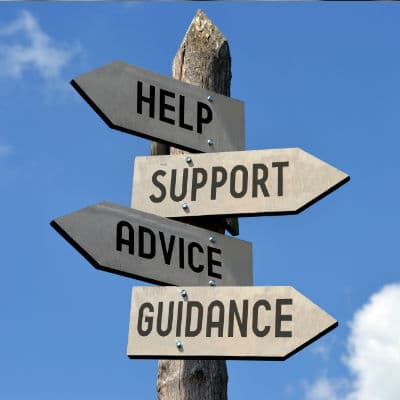 We wanted to provide you with some pain-focused resources and information for dealing with treatment interruptions, financial hardships, and emotional stressors related to COVID-19.
We wanted to provide you with some pain-focused resources and information for dealing with treatment interruptions, financial hardships, and emotional stressors related to COVID-19.
Treatment interruptions
Many in our community are concerned about access to vital medical services, whether because clinics and offices are closed or because they are personally trying to limit their chances of contracting COVID-19. Here are some details about increased telehealth services and preserving medication access.
- Telehealth OK for scheduled drugs. The Drug Enforcement Agency has lifted requirements for in-person office visits for refills of medications classified as controlled substances, and is allowing telemedicine visits in their place, so long as some basic standards are met. This exemption will last for the duration of the public health emergency. Learn more here.
- Medicare increases telehealth coverage. Medicare has temporarily expanded its coverage of telehealth services for the duration of the public health emergency. During this time, Medicare enrollees will be able to receive a specific set of services through telehealth, including evaluation and management visits (common office visits), mental health counseling, and preventive screenings. Learn more about the new policies here.
- Private insurer telehealth coverage. In general, we’ve seen a positive trend toward private insurers offering increased coverage of telehealth services. Some insurers are even waiving copays for telehealth visits. Please check directly with your insurer for details. America’s Health Insurance Plans has a good overview of several major insurers’ policy updates in response to the pandemic. Read more here.
- Medical cannabis access. So far, we’ve seen many state governments allowing medical dispensaries to stay open as essential businesses. Please check with your state government website for specific details about your area. Americans for Safe Access also has a great resource.
- Medication delivery. Pharmacies are currently considered essential businesses and are open. However, if you want to limit contact, keep in mind that many pharmacies offer home delivery of medications. Check with your pharmacy to see what options are available for you.
Financial hardships
The financial impact of social distancing and closures to nonessential businesses is being felt nationwide. Here is some information and resources related to financial challenges.
- State and local help. Many states have implemented policies to assist residents experiencing financial hardships. For example, some states are waiving the ability of utility companies to turn off essential services because of failure to pay. Check your state government website for the most up-to-date information. Also, please don’t be shy if you need more urgent help in the short term. Contact your town or city for more information about programs and services that can help you right now, like food banks or housing assistance.
- Federal stimulus plan. Early this morning, U.S. Senators and Trump Administration officials agreed to legislation that would provide up to $1,200 in the form of an “advance tax credit” to most individuals. The payment would decrease for those with incomes over $75,000 and end for individuals with incomes above $99,000. (The thresholds double for married couples who file taxes jointly). The bill also provides a $500 payment per child. It is important to note that the payment will be distributed based on your 2018 or 2019 (if already filed) federal tax return. However, whether you keep the initial amount you are given, receive a larger amount, or have to pay back a portion (because you were given too much) will be officially determined later on, based on your 2020 income levels and tax filings.
- SSDI recipients: SSDI recipients who do not file federal income tax returns are still eligible for stimulus payments as long as they earned at least $2,500 of income. SSDI benefits are treated as income for purposes of the plan.
- Low income individuals: Individuals who owed less than $1,200 federal income tax (i.e. made approximately $12,000 in income) during the applicable year will receive a stimulus payment equal to the greater of: 1) $600 or 2) the amount of income tax owed.
- Other funding: The package also improves and expands unemployment benefits, and allocates funding for hard-hit industries, small businesses, hospitals, and state and local governments. The bill text can be viewed here. Please note that this is our current reading of the bill, which is not yet law; we defer to any updates or additional details from policy experts in the coming days and weeks. Additionally, this is not tax advice. Consult a tax professional if you have questions.
Emotional stressors
In light of the numerous challenges we are facing right now, it is vital to take care of your emotional health.
- Webinar on coping. Last week, we held a webinar on how to cope with COVID-19 stress and anxiety featuring Gwenn Herman, LCSW, DCSW. Register to watch the recording here.
- Tips on staying busy. We’re sharing some tips and ideas from our staff on ways to keep busy if you’re isolating at home. Read more here.
- Pediatric Pain Warrior Spirit Week. To help cheer up our pediatric pain warriors and their families, we’re hosting #PedsPainWarriorSpiritWeek, with daily prompts and activities. Visit the Pediatric Pain Warrior Facebook page.
- Conference call support. We offer five monthly conference call support groups. You can join these calls from the comfort of home, for free. Each call is led by a person with pain who has received specialized training from Pain Connection. Register for the next call.
Please stay safe and contact us if you have questions, concerns, or anything else we might be able to help with.
We are here for you.
